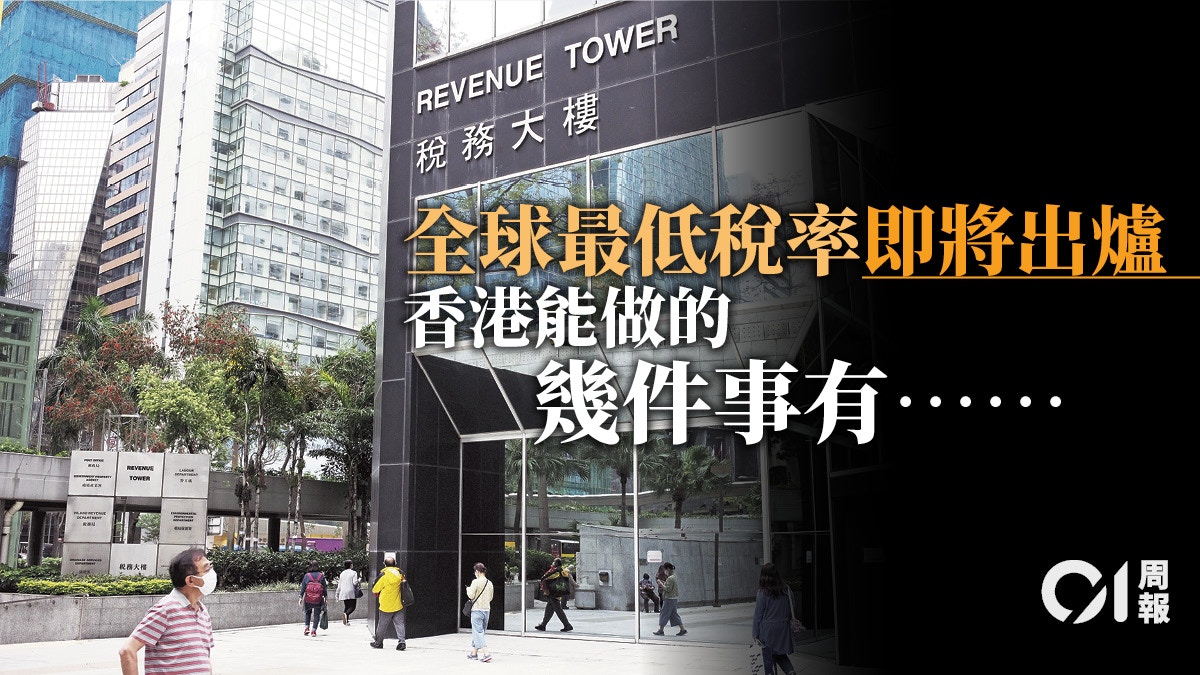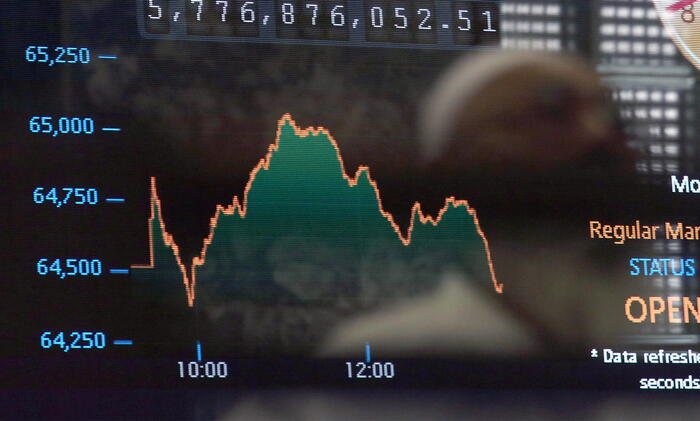weekly
Written by: Guo Wende
2021-06-16 20:00
Last update date: 2021-06-16 20:06
On June 5th, the Group of Seven (G7) organized finance ministers and central bank governors, as well as the International Monetary Fund (IMF), the World Bank (WB), the Organization for Economic Cooperation and Development (OECD), the Euro Group and the Financial Stability Board The person in charge reached an agreement to deepen multilateral economic cooperation after two meetings.
One of the most interesting aspects of the agreement is "Strongly support the ongoing efforts of the Group of Twenty (G20) and the OECD Inclusive Framework to respond to the tax challenges brought by globalization and economic digitization, as well as the adoption of the world's lowest taxation... Acknowledge the importance of advancing consensus on the two pillars in parallel," and promised to levy at least 20% tax on multinational giants with a profit margin of more than 10%, coordinate the abolition of digital service taxes in individual countries and adopt at least 15% The lowest tax rate in the world.
Related article: The
world's lowest corporate tax warns Hong Kong-the wave of international tax reform is coming!
The "inclusive framework" mentioned in the agreement refers to the "inclusive framework" established by the G20 and OECD in June 2016 to implement the "tax base erosion and profit shifting" plan, and "response to the tax challenges brought by the digital economy" This is the first task in the relevant action plan.
Since 2019, the "Inclusive Framework" has gradually achieved a "two-pillar" solution to meet tax challenges: the first "pillar" aims to expand the country's taxation of multinational technology and Internet giants by revising profit distribution and linkage rules The second “pillar” is the “global tax base erosion solution” that sets a global minimum tax rate so that multinational companies pay a certain amount of tax based on their profits in various regions.
If there are no surprises, the specific implementation details of the "Two Pillars" plan will be finalized at the "Inclusive Framework" meeting to be held from June 30 to July 1 this year.
The Group of Seven (G7) organizes finance ministers and central bank governors, as well as the heads of the International Monetary Fund (IMF), the World Bank (WB), the Organization for Economic Cooperation and Development (OECD), the Euro Group and the Financial Stability Board. After the meeting, an agreement to deepen multilateral economic cooperation was reached.
(Reuters)
The so-called "base erosion and profit shifting" (BEPS) generally refers to the use of international taxation legal differences and loopholes in mismatching rules to transfer profits to tax jurisdictions with lower or even zero tax rates, thereby reducing taxes. Negative "double non-taxation" effect.
Although Hong Kong joined the "Inclusive Framework" as "Hong Kong, China" immediately after the establishment of the "Inclusive Framework", Hong Kong itself has a vested interest in attracting foreign companies to invest in foreign companies through lower tax rates, so it has not taken it seriously for a long time. Cooperate with international efforts to combat BEPS.
It wasn't until the "two pillars" plan gradually took shape in recent years that the SAR government finally began to think about how to withstand its impact, especially to prevent the local economic environment from being affected by the global lowest tax rate under the "Global Tax Base Erosion Solution."
Maintain a simple local tax system and strive to be included in a low-risk zone
The implementation details of the global minimum tax rate will certainly be determined by the OECD and G20 at their meetings after next month, but this does not mean that Hong Kong can wait and wait for changes at this time.
For example, in October 2020, the "Inclusive Framework" has completed a report on the blueprint for the "Two Pillars" plan, which explains several possible principles or supporting arrangements after the implementation of the global minimum tax rate, such as retrospecting the tax burden of the parent company. The "revenue to shareholders rule" will apply to multinational groups with annual income of 750 million euros (approximately HK$7.06 billion), as well as listed investment funds, pension funds, government-linked entities, sovereign wealth funds, international organizations, non-profit organizations, etc. Corporations are exempt from regulation. The most noteworthy point for Hong Kong is the simplification of the "Administrative Taxation Guidelines" proposed in the report.
When the OECD conducted a public consultation in December 2019, many multinational companies once emphasized that the global minimum tax rate should be simplified and reduced the complexity of related rules.
Since multinational companies must use the same effective tax rate calculation method in each tax jurisdiction, they must be worried that this will bring a huge administrative burden; in addition, continue to calculate the tax burden on profits from regions that meet the lowest tax rate. Enterprises and tax departments waste considerable resources.
Regarding the aforementioned problems, the OECD approach is to set up an advisory group to provide "tax administrative guidelines" to determine which areas are low-risk taxation areas, and allow multinational companies to be automatically deemed to have paid more than the minimum effective tax rate in these areas. So as to avoid tedious calculation time and administrative cost.
If the OECD and the G20 do introduce simplified measures for the "Tax Administrative Guidelines" in the future, the simple tax system pursued by Hong Kong must be a great advantage.
According to PricewaterhouseCoopers and the World Bank’s "World Tax Report 2020", in terms of tax convenience, Hong Kong ranked second in the world’s tax jurisdiction in 2018. Both corporate corporations and employees can Pay taxes within 34.5 hours with three payments, second only to Bahrain, a Middle Eastern country that does not seek group profits tax.
The Hong Kong nominal profits tax rate itself is already higher than the world’s lowest tax rate of 16.5%, and there is no need to perform too many complicated operations when converting other countries’ taxes. The Hong Kong government can follow the OECD report’s recommendations "to invest resources to understand different countries." The design and potential impact of the taxation system", and on this basis, sought from the advisory group to list Hong Kong as a low-risk taxation area.
The Hong Kong government must abandon the habit of relying too much on tax relief and subsidy policies in the past, and really focus on creating a suitable business environment.
(Profile picture/Photo by Zhang Haowei)
Create non-recording advantages to attract companies to stay in Hong Kong to pay taxes
Secondly, since it is inevitable for multinational companies to increase tax expenditures under the global minimum tax rate scheme, instead of allowing them to pay increased top-up tax in other tax jurisdictions, they should seize this opportunity to encourage International investors retain or expand their business in Hong Kong so that the SAR government can earn more tax to support the sustainable development of local economy and society; especially for some businesses already in Hong Kong, but the tax payment is not expected to reach the lowest level in the world For large multinational corporations with high tax rates, Hong Kong especially needs to try its best to persuade them to consider transferring their remaining businesses from high-tax areas.
In order to achieve the above goals, the Hong Kong government must abandon the habit of relying too much on tax relief and subsidy policies in the past, and really focus on creating a suitable business environment.
When the Hong Kong government or society wants to help a specific industry, it often only thinks of lowering the profits tax rate of related companies and then the business is done, such as insurance and aircraft, ship leasing and leasing management industries.
Once the global minimum tax rate is implemented, the attractiveness of these measures will undoubtedly be greatly reduced, and even in turn will hinder the procedures for companies to calculate effective tax rates.
In fact, with the exception of direct tax relief measures, all other subsidy policies that are essentially purely related to the allocation of funds cannot escape the impact of the world's lowest tax rate.
Whether it is shop rent reduction or exemption, provision of unpaid services, public funds grants or other similar practices, they will eventually be displayed in the corporate financial statements as a record item to reduce operating costs or increase revenue and profits, so the group will still calculate the effective tax rate in the final calculation. Can't avoid it.
In the past, international companies were willing to arrange business to operate in Hong Kong. There must be reasons for the low-tax environment. If Hong Kong wants to retain them in the future, naturally they can only develop other advantages; as for those parts that were not originally attracted by Hong Kong's low-tax environment , It also reflects that they value other incentives that have nothing to do with accounting figures.
These advantages and incentives may be high-efficiency public services, convenient commuting to work and residence distribution, easy-to-obtain market information, highly accessible transportation network, comfortable and pleasant livable environment, diverse and diverse sources of talent, or a harmonious and stable The social atmosphere, in other words, is related to the government's most basic responsibility for the development of the local society. Such governance achievements can never be achieved by spending money alone, but need senior officials and civil service teams to do their jobs over time.
Many countries around the world are conducting experiments on the implementation of central bank digital currencies, and Hong Kong is clearly lagging behind others in this regard.
(Xinhua News Agency)
Cooperate with tracing hidden tax sources and accelerate the development of digital currency
It must be mentioned that the global lowest tax rate is one of BEPS's anti-tax avoidance actions, and its implementation will inevitably increase the total tax revenue of local governments.
The economic impact assessment results of the "Inclusive Framework" last year showed that the G20 and OECD’s "two-pillar" program could bring global corporate tax revenues of US$50 to 80 billion (approximately HK$388 to 620.9 billion), plus The United States’ global low-tax income tax system for intangible assets is even as high as 60 billion to 100 billion U.S. dollars (approximately 465.6 billion to 776.1 billion Hong Kong dollars). This is probably why Chen Maobo dared to say that the world’s lowest tax rate a few months ago "will also affect us in terms of taxation. "Some positive contributions", but if Hong Kong, as a low-tax area, wants to get a share of the pie, in addition to attracting foreign companies to invest in Hong Kong and improving the local business environment, it also has to keep up with the original intention of the action and cooperate in tracing the hidden tax sources of multinational companies. .
For example, the world’s lowest tax rate itself is a plan to "respond to the tax challenges brought by the digital economy", which shows that its real opponent should be the digital technology that continues to dilute government tax sources. Later governments also found that it can Try to "use the spear of the son, attack the shield of the son", as is the case with the Central Bank Digital Currency (CBDC) initiative that has become popular in recent years.
Reading the G7 finance ministers, central bank governors, and leaders of other international organizations' earlier agreements, we can see that they immediately mentioned the issue of central bank digital currency after the "two pillars" plan, clearly stating that "any central bank digital currency... It can be used as a liquid and safe settlement asset as well as the anchor point of the payment system." This is a disguised recognition that the central bank's digital currency is sufficient to assist BEPS operations and stabilize the global economy.
According to the results of the third central bank digital currency survey published by the Bank for International Settlements at the beginning of the year, 86% of central banks around the world are participating in promoting the issuance of central bank digital currencies, and more and more countries have carried out central bank digital currency landing experiments, but Hong Kong is far from reality. Implementation is still far away.
Looking at Shenzhen, which is only across the river from us, last year it was listed by the state as a pilot reform of the "digital renminbi". In contrast, it highlights how backward Hong Kong's development of the central bank's digital currency is.
For this powerful tool for tracking corporate transactions and locking in hidden tax sources, Hong Kong will no longer seize the time to prepare properly. When the world's lowest tax rate and other BEPS follow-up actions are implemented one after another, I am afraid it will be difficult to compete with other tax jurisdictions that have developed central bank digital currencies. .
Finally, it must be emphasized that the smooth progress of this global minimum tax rate plan is largely due to the need for Western powers, led by the United States, to increase their tax rates in order to open up new sources of financial resources to support economic recovery and infrastructure construction after the new crown virus epidemic. Therefore, it is necessary to rely on the world's lowest tax rate to prevent domestic companies from evading tax, but regardless of how selfish this intention is, their behavior is objectively the government's willingness to abandon the low tax policy and strengthen the market's trend of supervision.
Even these countries that believe in a free economy know that they can’t let their "invisible hands" behave themselves. Should Hong Kong, which claims to advocate the same set of ideas, also take this opportunity to review its low tax policy and seriously consider increasing corporate profits? Taxes or other tax reforms that are conducive to the fair distribution of social wealth?
The above was published in the 269th issue of "Hong Kong 01" Weekly (June 15, 2021) "How does Hong Kong deal with the world's lowest tax rate?" ". If you want to read the full text, please
click here to
sample the weekly newsletter and browse more in-depth reports.
Highlights of the 269 issue of "Hong Kong 01" Weekly News:
[Cover report] The world’s lowest corporate tax warns of Hong Kong’s international tax reform wave!
"The 14th Five-Year Plan" has clear goals
Drift in Hong Kong
Do tech giants dominate the world order?
"Military technology complex" becomes a new modern battlefield
G7 Summit Tax In-Depth Report on Corporate Tax 01 Weekly






